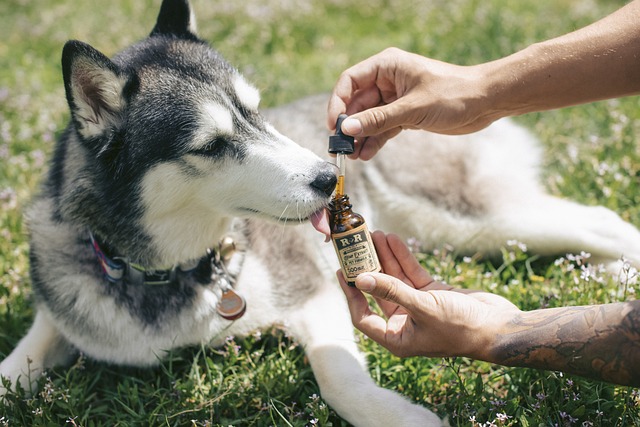In today's health-conscious market, consumers demand purity and safety in CBD products. Heavy Metals Testing for CBD is not only a regulatory necessity but also a crucial strategy to build consumer trust. By ensuring the absence of harmful heavy metals like lead, mercury, and cadmium, brands protect their reputation, foster loyalty, and provide customers with peace of mind. Advanced technologies like ICP-MS revolutionize product safety assurance, while transparency in testing results strengthens brand-consumer relationships. Compliance with global regulations is essential for maintaining a positive industry image and fulfilling consumer demands for transparency, ultimately driving market success.
In today’s market, consumer trust is paramount, especially in the CBD industry. Understanding and addressing concerns about product safety is crucial for brand credibility. This article delves into the significance of heavy metals testing as a key strategy for CBD quality assurance. By exploring common sources of heavy metals, advanced detection techniques, and regulatory standards, it highlights how transparency builds consumer confidence. We’ll navigate the importance of this process in ensuring product purity and meeting industry compliance requirements.
Understanding Consumer Concerns: Why Product Trust is Crucial

In today’s market, consumers are increasingly conscious of what they put into their bodies, especially when it comes to health and wellness products like CBD. This heightened awareness has brought to light a significant concern: the potential presence of heavy metals in CBD supplements. Heavy Metals Testing for CBD is not just a regulatory requirement but also a crucial step in building consumer trust.
When customers purchase CBD products, they expect them to be safe, pure, and effective. The last thing they want is to worry about exposure to harmful substances like heavy metals. Tests that ensure the absence of these metals give consumers the confidence to use the products without reservations. It also protects brands by maintaining their reputation and fostering long-term customer loyalty.
The Role of Heavy Metals Testing in CBD Quality Assurance

In the realm of CBD (Cannabidiol) products, ensuring quality and safety is paramount to building consumer trust. One critical aspect often overlooked but crucial for maintaining high standards is heavy metals testing. This process plays a pivotal role in guaranteeing the purity and integrity of CBD oils, capsules, topicals, and other cannabis-derived goods. Heavy metals, such as lead, mercury, and cadmium, are potentially harmful contaminants that can find their way into the production process or raw materials due to various reasons, including environmental factors and manufacturing practices.
Regular heavy metals testing for CBD products acts as a robust quality assurance measure. By employing advanced analytical techniques like Inductively Coupled Plasma Mass Spectrometry (ICP-MS), manufacturers can detect even trace amounts of these hazardous substances. This proactive approach ensures that the final product meets stringent safety standards, allaying consumer concerns about potential health risks associated with heavy metal exposure. Such testing is a game-changer in fostering trust, as it demonstrates a commitment to transparency and product excellence among CBD brands.
Common Sources of Heavy Metals in CBD Products

CBD (Cannabidiol) products have gained popularity for their potential health benefits, but it’s crucial to address a critical concern—the presence of heavy metals. Heavy metals testing for CBD is an essential step in ensuring product safety and trustworthiness. Common sources of heavy metals in CBD include environmental contaminants, manufacturing processes, and the source of the hemp plant itself.
During cultivation, hemp can absorb lead, mercury, and other toxic elements present in the soil or water. Industrial extraction methods might introduce additional heavy metals if not properly controlled. Even trace amounts can be harmful, leading to potential health risks for consumers. Therefore, thorough heavy metals testing is vital to guarantee the purity and safety of CBD products, fostering trust among customers who rely on these supplements for their well-being.
Advanced Techniques for Accurate Heavy Metals Detection

In the realm of Heavy Metals Testing for CBD, advanced techniques have emerged to ensure product trust and safety. These cutting-edge methods employ sophisticated instruments like inductively coupled plasma mass spectrometry (ICP-MS), which allows for highly sensitive and precise detection of trace amounts of heavy metals in CBD products. This technology enables manufacturers to confirm the absence of harmful contaminants, enhancing consumer confidence.
Additionally, improved sample preparation techniques play a crucial role. Effective extraction and concentration methods, such as liquid-liquid extraction and solid-phase extraction, help isolate heavy metals from complex matrices found in CBD oil or other derivatives. By combining these advanced techniques with stringent quality control measures, manufacturers can deliver high-quality CBD products, assuring consumers of their purity and safety.
Benefits of Transparency in Heavy Metals Testing Results

Transparency in heavy metals testing results is a game-changer for building consumer trust in CBD products. When brands make their test data readily available, customers gain confidence knowing that the product they’re purchasing has undergone rigorous scrutiny to ensure it’s free from harmful contaminants like lead, mercury, and arsenic. This transparency acts as a powerful assurance, especially considering the growing concern about heavy metal presence in dietary supplements.
For CBD companies, implementing robust heavy metals testing processes and proudly sharing the results fosters a sense of accountability and integrity. It distinguishes them as reputable businesses that prioritize consumer safety above all else. By embracing open communication about their testing methods and outcomes, these brands encourage customers to make informed choices, ultimately strengthening the bond of trust between the brand and its audience.
Regulatory Perspective: Standards and Compliance for CBD Industry

In the rapidly growing CBD industry, establishing trust with consumers is paramount. A critical aspect of this is adhering to stringent regulatory standards, particularly when it comes to product safety and quality assurance. Regulatory bodies worldwide are implementing regulations that mandate rigorous testing, including heavy metals analysis, to ensure consumer protection. This involves comprehensive testing for any trace contaminants, such as heavy metals, which can be present in the cultivation, extraction, or manufacturing processes. By meeting these standards, CBD brands demonstrate their commitment to producing safe and pure products.
Compliance with regulations like those related to heavy metals testing is essential to maintaining a positive public perception of the industry. Consumers increasingly demand transparency and proof of product quality. Brands that proactively undergo such testing and make the results publicly available build trust and differentiate themselves in a competitive market. This regulatory perspective underscores the need for CBD companies to prioritize thorough quality control measures, ensuring their products are free from harmful contaminants and safe for consumption.
Building Consumer Confidence through Comprehensive Testing

In today’s market, consumers are increasingly conscious of product quality and safety, especially when it comes to health and wellness supplements like CBD. One of the most effective ways to build consumer confidence is through comprehensive testing, including heavy metals testing for CBD products. This rigorous process ensures that what’s on the label accurately reflects the product’s composition. By identifying and eliminating any trace elements of heavy metals—which can be harmful and pose potential health risks—brand transparency is enhanced, fostering trust among discerning buyers.
Comprehensive testing goes beyond meeting regulatory standards; it becomes a competitive advantage for brands committed to purity and quality. Consumers are empowered to make informed choices when they see the results of these tests, knowing their CBD products are free from impurities. This level of transparency builds a strong foundation for brand loyalty and positive word-of-mouth recommendations, crucial in a market saturated with various CBD offerings.
